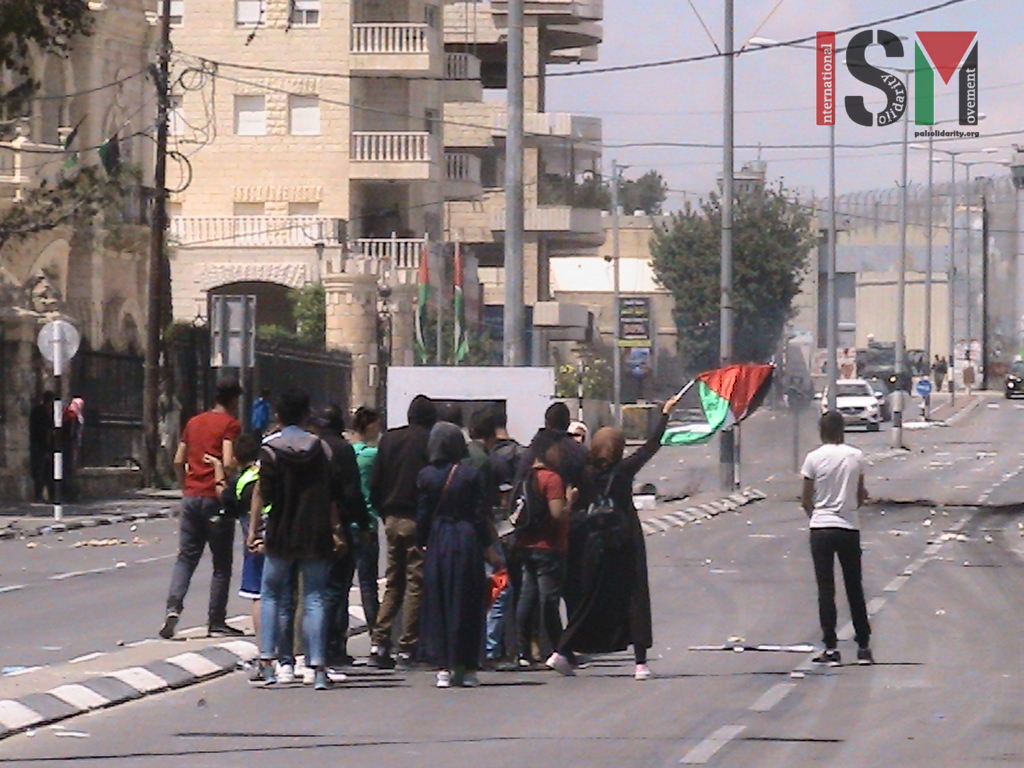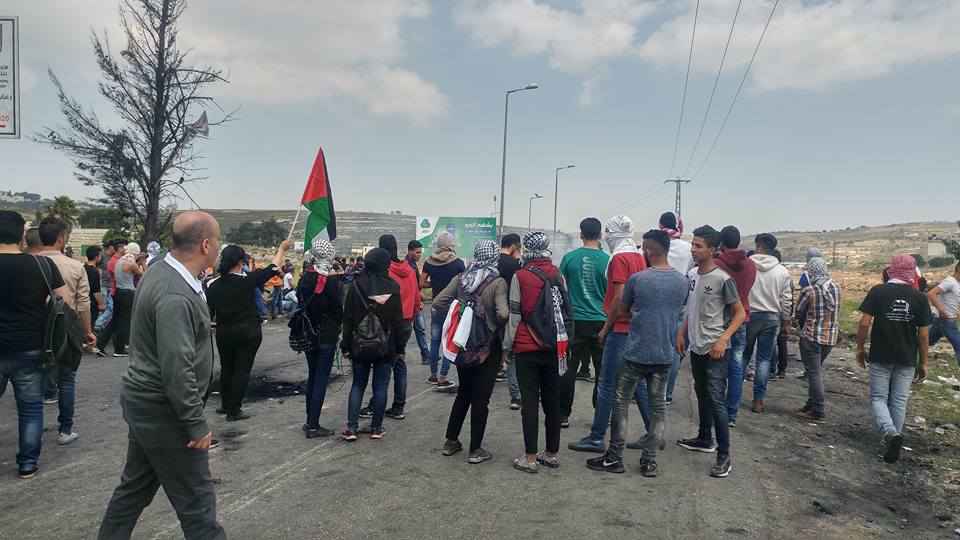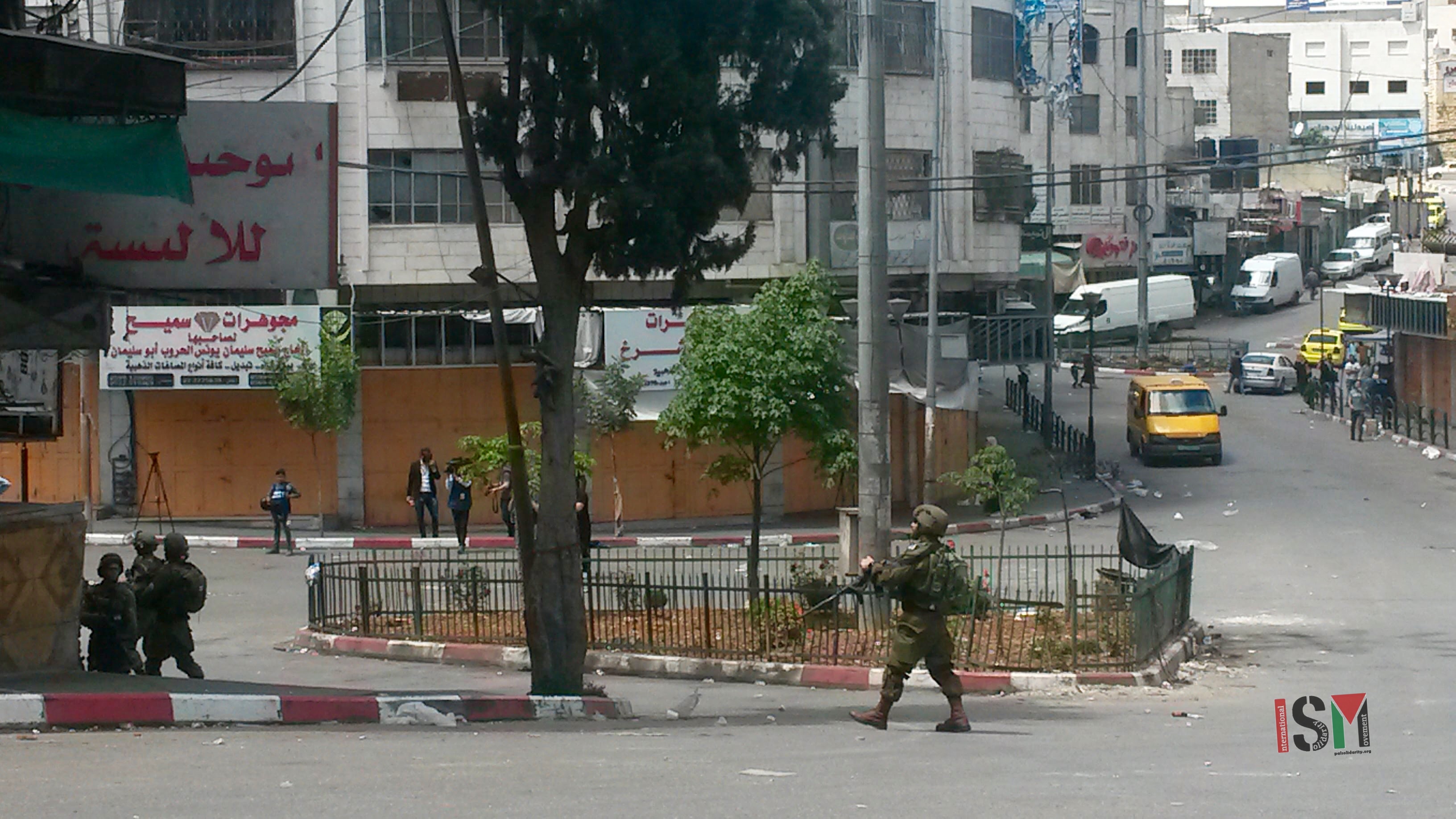Category: Reports
-
Bethlehem protests the US embassy relocation
On the 14th May 2017, the day the new US embassy to Israel was due to open in Jerusalem, protests were held across Palestine. In Bethlehem, hundreds of children, women and men marched from Nisan Square to the gate in the apartheid wall separating them from Jerusalem. This unarmed protest was immediately met by brutal…
-
Many injured in Beit El protest on 15th May in commemoration of the Nakba
Palestinians marched from Arafat square in Ramallah at 11am this morning 15th May to the DCO checkpoint near the illegal settlement of Beit El to confront Israeli forces. At around 12PM there were over 1000 protestors. Israeli forces fired excessive amounts of rubber coated steel bullets, tear gas, sponge tipped batons and reportedly also used…
-
Israeli soldiers injure 4 unarmed Palestinians in Al-Khalil protest Monday 14th May
On Monday 14th May at 11am, protesters in occupied Al-Khalil gathered at the Hussein Mosque stadium with placards, and marched down to the city centre, gathering there and taking pictures at around 11.30. Around 80 protesters were present, including children and observers. Some protesters continued on towards Checkpoint 56, which prevents Palestinians from entering Shuhada…



